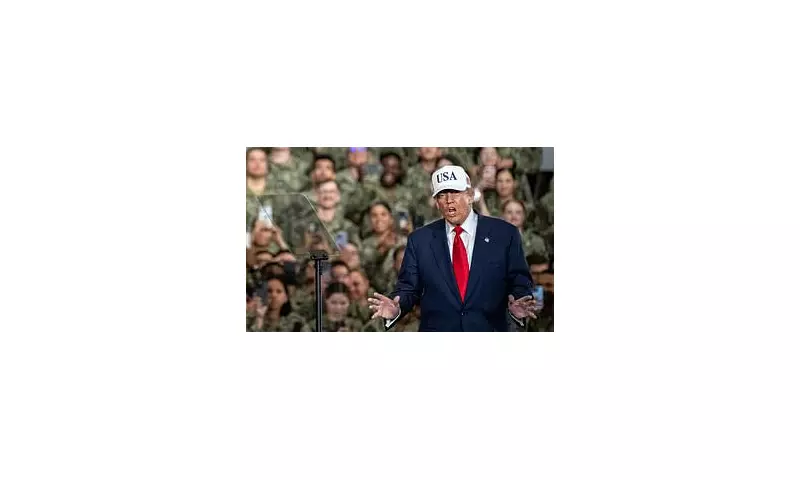
In a revelation that could reshape Asian security dynamics, former President Donald Trump is reportedly considering the withdrawal of American troops from Japan if he returns to the White House. This dramatic shift in military strategy has sent shockwaves through diplomatic circles and defence establishments on both sides of the Pacific.
A Strategic Bombshell for Asian Security
According to sources familiar with Trump's thinking, the potential troop pullout forms part of a broader reassessment of America's global military footprint. The move would represent one of the most significant adjustments to US force deployment in the Asia-Pacific region in decades, potentially creating a power vacuum that could be exploited by adversaries.
Why Japan Matters in Global Defence
Japan hosts approximately 54,000 American military personnel across numerous bases, making it the cornerstone of US defence strategy in East Asia. These forces serve as a crucial deterrent against regional threats and provide rapid response capabilities for potential conflicts.
The presence of US troops in Japan has been widely regarded as essential for:
- Countering North Korean missile threats
- Maintaining stability in the Taiwan Strait
- Providing a check on Chinese military expansion
- Ensuring freedom of navigation in vital sea lanes
Diplomatic Fallout and Regional Concerns
Japanese officials are reportedly deeply concerned about these developments, though public statements remain carefully measured. The US-Japan security alliance has been the bedrock of regional stability since World War II, and any significant alteration could have far-reaching consequences.
"This isn't just about bilateral relations—it's about the entire security architecture of Asia," noted a senior Asian diplomat who spoke on condition of anonymity.
The Financial Angle: Burden-Sharing Debates
Trump's consideration appears driven by his long-standing belief that allies should contribute more financially to their own defence. During his first term, he frequently complained that Japan and other allies were not paying enough for American protection.
The former president has consistently argued that host nations should cover the full cost of maintaining US forces on their soil, plus what he calls a "premium" for American protection.
What This Means for Global Power Dynamics
A reduction of US forces in Japan would inevitably alter the balance of power in Asia, potentially encouraging more assertive behaviour from China and North Korea. It could also prompt Japan to dramatically increase its own military capabilities, including possibly developing offensive weapons systems currently prohibited by its pacifist constitution.
Regional experts identify several critical implications:
- Increased pressure on South Korea to host additional US forces
- Potential acceleration of Japanese rearmament
- Possible realignment of regional alliances
- Enhanced opportunities for Chinese influence operations
As the world watches Trump's potential return to power, this troop withdrawal consideration underscores how dramatically US foreign policy might shift in a second Trump administration, with consequences that would ripple across the globe for years to come.





